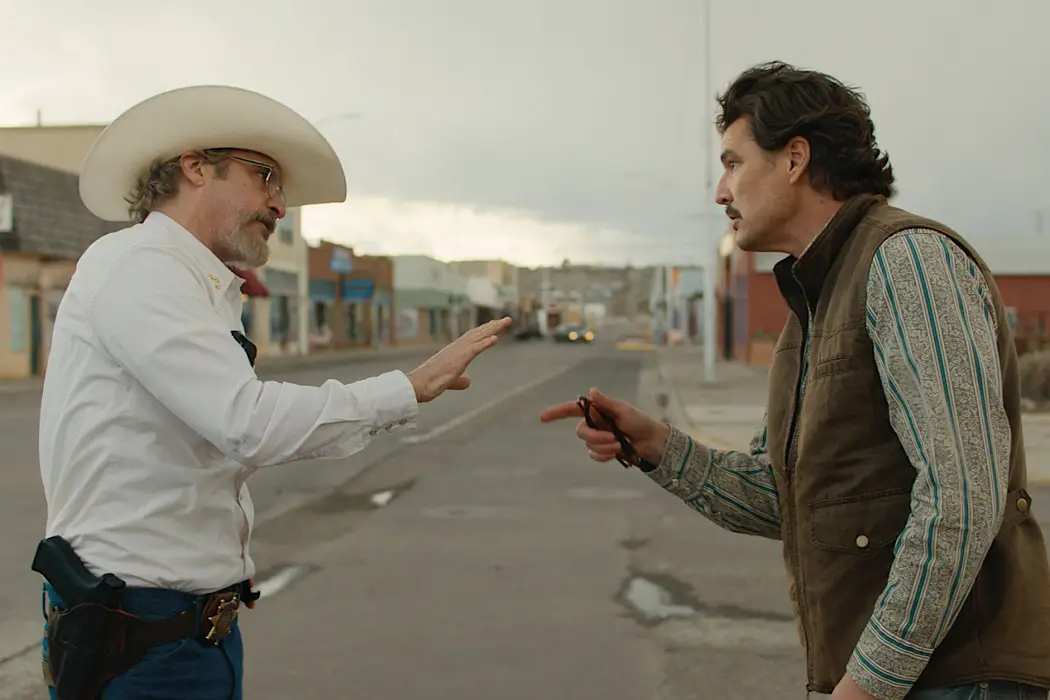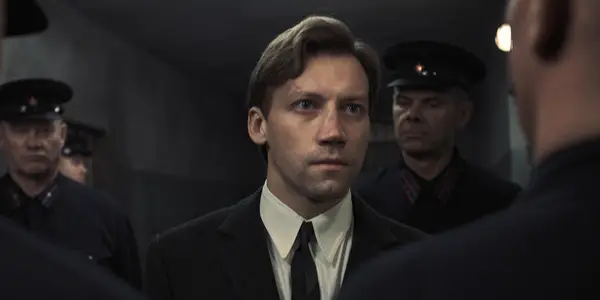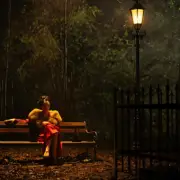Cannes 2025: Two Prosecutors and Eddington

Wilson is a cinema enthusiast based out of Toronto, Canada.…
As films that criticize a country’s sociopolitical system, Two Prosecutors and Eddington approach this task in markedly different ways. Sergejs Loznica’s Two Prosecutors is quiet and reserved, whereas Eddington, despite not being a prototypical Ari Aster experience, is still an Ari Aster experience nonetheless.
Two Prosecutors (Sergey Loznitsa)

Constructed through a series of simply staged conversations between a prosecutor and his peers, Sergejs Loznica’s latest might seem to lack complexity on paper. Yet this rigid structure really complements the sociopolitical message of the film and serves as a grand and observational narrative about the Soviet Union’s Great Purge.
Set in 1937, in the midst of Stalinism, a young prosecutor, Kornyev (Aleksandr Kuznetsov), meets an elderly prisoner, Stepniak (Aleksandr Filippenko), accused of conspiring against the government. Thinking that the prisoner is being wrongfully held in prison due to corruption within the Soviet Union’s inner ranks, Kornyev escalates the case through official channels. This brings him from the prison to the Procurator General, where his perspective, and perhaps loyalty to his own country, is slowly unraveled.
Jumping from one prolonged conversation to the next, the film never loses its dramatic grip on what is ultimately a tragic cautionary tale on the futility of political justice during that particular era. The narrative is also framed from the naivete of its innocent protagonist, who presumably channels the collective mindset of those who were unaware of the country’s changing landscape. During a time when corruption and totalitarianism were slowly creeping into the foreground, Two Prosecutors is embedded with an eerie sense of cynicism. Evil is clearly lurking in the background, and Lozņica shows restraint in never overdramatizing the heinous acts being depicted. He doesn’t necessarily shy away from it either, with Stepniak, in particular, recounting his imprisonment in graphic detail. Even this, however, is presented with calamity, rather than vitreous intensity.
The rigid structure of the film also feels compulsory to the story being told. It essentially emulates Kornyev’s lack of control over his own fate, which further mirrors the nation’s lack of political freedom during Stalin’s rule. Even as Kornyev seems to move freely from the prison to the Procurator General’s office, any sentiment of freedom is really only a mirage. The reality is, he can only go where the government allows him to go. In a similar fashion, Lozņica restricts the audience with his rigid stylistic choices, particularly when it comes to the framing and blocking of shots, leaning heavily on minimalism, rather than grandeur.
Some might argue that Two Prosecutors doesn’t quite do enough as a film, and its observational and quiet approach to narration fails to capture the stakes of the Great Purge. But Lozņica wasn’t trying to make an overtly obvious film about evil. The film is really meant to contextualize how evil can be hiding in plain sight, and how this type of evil can effectively break down a society from within. It’s an impressive film told with precise and restrained tenacity.
Eddington (Ari Aster)

Crafted with both a reverence and disdain for America’s current sociocultural zeitgeist, Eddington might just be Ari Aster’s most accessible film to date. Set during the COVID-19 pandemic, the film is not nearly as bombastic as his previous features, but equally as thoughtful in its ideologies. This might not seem like your typical Ari Aster film, but still has his DNA clearly infused from beginning to end.
Starring Joaquin Phoenix as Joe Cross, a local sheriff, who comes at odds with Mayor Ted Garcia (Pedro Pascal), who is in the process of seeking re-election for another term. Campaigning during the global pandemic, where paranoia and anxiety are at an all time high, the town of Eddington serves as a microcosm to explore America as a fractured society. The film also stars Emma Stone, Austin Butler, Luke Grimes, Michael Ward and Deirdre O’Connell.
As a playful satire with serious undertones, Eddington strives through with Pheonix’s comedic performance, which carries the narrative with a sense of aloof unawareness. Whether it’s his refusal to believe (and ultimately wear) masks or declaration of the general media as factitious propaganda, the film makes you question whether or not to take Joe as a serious character. Yet, as the story plays out, you do end up taking him seriously, or at least his actions have serious consequences on the rest of the town. Phoenix never resorts to any performative ridicule, creating a character that’s tragically humorous, yet oddly full of life. Stone and Pascal, both of whom are also know to have good comedic timing, also serve as excellent sparring partners.
Aster also presents this dichotomy of serious versus ridiculous in a way that feeds right into his sensibilities as a filmmaker. The film might be more accessible than his usual fare, but it’s still far from conventional. Utlizing this tame, yet colourful world, he’s able to capture the world’s collective vitriol on society as a whole, where conflict and disagreements seem inevitable. Painting this story on the backdrop of the pandemic adds a layer of recency and relatability that really punctuates Aster’s view on the world today.
In a sense, Eddington is a statement on how extremism and ignorance can, and often are, on the same spectrum. The film is quite self aware, and serves as a low-key satire that doesn’t necessarily feel sarcastic or overbooked. Aster continues to demonstrate his dark and twisted versatility as a filmmaker, whose stylistic choices are unique and unequivocally his own.
Does content like this matter to you?
Become a Member and support film journalism. Unlock access to all of Film Inquiry`s great articles. Join a community of like-minded readers who are passionate about cinema - get access to our private members Network, give back to independent filmmakers, and more.
Wilson is a cinema enthusiast based out of Toronto, Canada. He escapes from his day job by writing random thoughts about cinema on the internet. Although he has a longstanding penchant for Hong Kong cinema, he considers himself to be an advocate for Asian cinema in general. He has been attending the Toronto International Film Festival every year since 2005, and more of his work can be found on his website: www.wilson-kwong.com.













